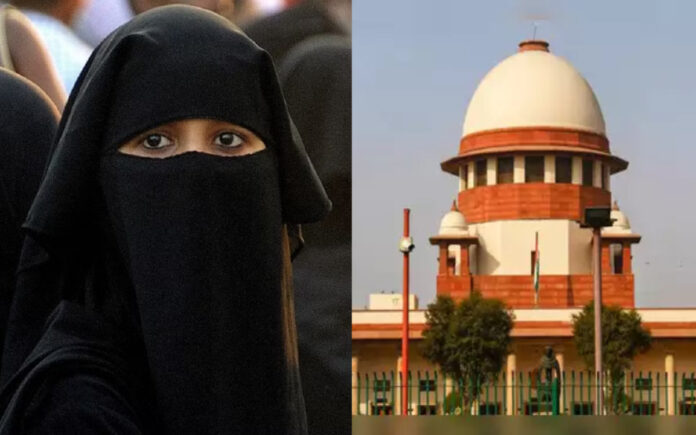New Delhi: The Central government has filed an affidavit with the Supreme Court challenging the practice of ‘triple talaq,’ asserting that previous judicial interventions have not sufficiently deterred its use. The government argues that the practice continues despite the Supreme Court’s earlier decision to nullify it and the assurances provided by the All India Muslim Personal Law Board.
In its affidavit, the Centre stated, “Despite the Supreme Court setting aside the practice of talaq-e-biddat, and assurances from the All India Muslim Personal Law Board, reports of divorce through talaq-e-biddat persist across the country. The Court’s ruling has not sufficiently deterred the number of divorces conducted through this practice.”
The government emphasized the need for more stringent legal provisions to effectively implement the Supreme Court’s order and address grievances related to illegal divorces. “The law was intended to safeguard the rights of married Muslim women subjected to triple talaq. There is an urgent need for more robust measures to prevent Muslim husbands from resorting to instantaneous and irrevocable divorce practices,” the affidavit stated.
The government also highlighted the plight of victims of talaq-e-biddat, who often find themselves compelled to seek police intervention without effective legal recourse due to the absence of punitive measures. The Centre described the practice as detrimental to the institution of marriage and stated that it renders the condition of Muslim women “very pathetic.”
Also Read | Indian Medics Continue Protests Over Doctor’s Rape and Murder
Background on the Triple Talaq Ban
Five and a half years after declaring triple talaq unconstitutional, arbitrary, and discriminatory, the Supreme Court is now reviewing a series of Public Interest Litigations (PILs challenging the Muslim Women (Protection of Rights on Marriage) Act, 2019, known as the triple talaq criminalization law. This Act imposes a three-year prison term on Muslim men who practice triple talaq.
The Act has faced scrutiny from various petitioners, including Maulana Amir Rashadi Madani, the Samastha Kerala Jamiathul Ulema, and Jamiat Ulama-i-Hind. They argue that the Act is unconstitutional as it criminalizes an act already deemed unconstitutional by the Supreme Court. They also contend that the Act fails to ensure that women receive maintenance and protection, focusing solely on penalizing the act of triple talaq without addressing the broader needs of affected women.
Also Read | Indian PM Modi to Travel to Ukraine Following Controversial Moscow Meeting
In response, the government has defended the Act as a necessary deterrent, pointing out that despite the Supreme Court’s ruling against the practice, numerous cases of triple talaq continue to be reported. “When Hindus and Muslims face penalties under laws such as those for dowry or domestic violence, there is no objection. Why should there be resistance to penalizing this practice?” questioned then Law Minister Ravi Shankar Prasad.



